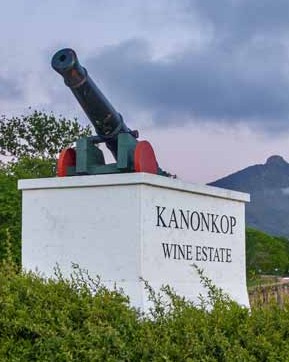Tim James: On the past and future of SA fine wine
By Christian Eedes, 28 March 2016

4
The latest Grape poll on South Africa’s Top 20 wine producers (see here) has had me thinking forwards as well as back. A backward glance first, and a statistic that testifies to the dynamism of the top end of Cape wine: only five of the wineries in the latest list were there on the very first such voted list, in 2001 – Kanonkop (the winner back then), Vergelegen (second-placed), Boekenhoutskloof, Jordan and Klein Constantia.
You might wonder about the others in the 2001 list. In order of their ranking, they were: Veenwouden, Neil Ellis, Rustenberg, Hamilton Russell, Glen Carlou, Thelema, Grangehurst, Villiera, Saxenburg, Spice Route, Bouchard Finlayson, De Trafford, Buitenverwachting, Fairview, Graham Beck, Springfield. (If you’ve been counting you’ll have realised that there were 21 names on the 2001 list – that was because the bottom four tied, so all had to be included.) Just off the list were Le Riche, Meerlust and Mulderbosch, closely followed by L’Avenir, Simonsig, Warwick and Welgemeend.
Most of those names are still highly respected: it’s more a matter of newer producers having overtaken them than of their having declined – though some arguably have, and even standing still has not been good enough in the new South Africa. I wonder, though, how many winelovers under the age of, say, 40 now know much about Veenwouden, which ranked third in that 2001 poll? Given that it had slipped to the bottom of the list by 2003, it’s unlikely that the eclipsing of Veenwouden’s prestige was prompted (though it might have been accelerated) by the tragic family murder in 2006 which saw the death of its founder-owner, the international opera singer Deon van der Walt. Or know much about Welgemeend – another small Paarl winery and a historically important one, producer of the Cape’s first Bordeaux blend and the Cape’s first serious blend with pinotage as a named component.
The 2001 and 2016 lists show an interesting and significant difference of a more structural kind, however, which is what prompted my musing about the future. Although some of the 2001 producers bought in some grapes from elsewhere, most were solid estates, and all had both vineyards and wineries of their own – even Neil Ellis, the Cape’s first important negociant, by this time.
Compare that situation to the one obtaining in 2016. Five of the Top 20 producers in 2016 – that is, one quarter – do not own vineyards: Alheit, Crystallum, David & Nadia, Sadie and Savage. Of those, only Sadie Family Wines makes its wine in its own cellar. Furthermore, another two, Mullineux and Badenhorst, still rely heavily on other farms when sourcing fruit for their top wines.
In a decade or two, if all goes according to plans and dreams, this will very probably be at least less true, less significant, for at least some of these producers. But for now it’s a rather sobering thought, isn’t it? If Abrie Beeslaar, Kanonkop winemaker, were to decide to leave that job, or if the current owners were to sell the place or were to die – there’d still be every reason to expect to find Kanonkop serenely placed on the Top 20 list in 2031 (someone other than me will have to compile it…).
But, as things stand now, if (may all the gods, especially Bacchus, forbid!) the owner-winemakers of some of the Cape’s other top wineries were wiped out tomorrow, it’s surely pretty unlikely that their names would be there in fifteen years’ time.
- Tim James is founder of Grape.co.za and contributes to various local and international wine publications. He is a taster (and associate editor) for Platter’s. His book Wines of South Africa – Tradition and Revolution appeared in 2013.







Udo | 30 March 2016
Veenwouden is a village in ‘Friesland’ or Frisia (this is a province in the northwest of the Netherlands)
‘Veen’ means ‘peat’ and ‘wouden’ means ‘forests’
Feanwâlden Is the Frisian name
Tim James | 28 March 2016
We’ll make a Dutch speaker of you yet, Dawid de Klerk. “Voh” rather than “wo”, however, in what I’d think would be Australian phonetics. It means Fairy Forest (I think); an opera connection, somehow.
Hennie Taljaard | 1 April 2016
its actually Dawid du Toit…
David Clarke | 28 March 2016
Under 40 and never heard of Veenwouden…not even sure how to pronounce it: fee-en-woh-dun? (Australian phonetics)